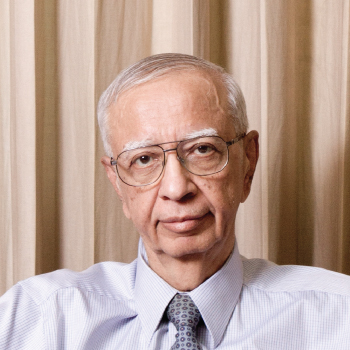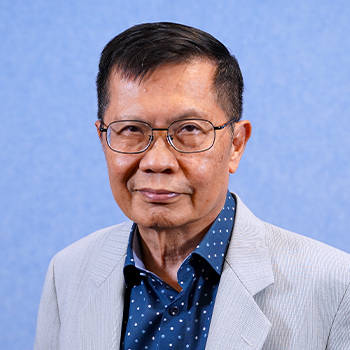Achara Ashayagachat
Panel supports both elections and reform
Prominent intellectuals have established a network to campaign towards averting a possible coup and violence and to promote the election and reforms.
They say the current situation threatens to bring about civil war if all confronting parties do not ease tensions.
Representatives from 10 civil society organisations and 70 individual scholars and activists read out a two-page statement at Thammasat University yesterday ahead of the anti-government People’s Democratic Reform Committee (PDRC) “shutdown” of Bangkok on Monday.
The group calls itself “Two Yes-Two No” referring to two things that they support – the electoral rights of people under the constitution and the country’s reform according to democratic means – and two things they oppose – a coup and violence from any group.
Among the 70 scholars and activists were Kasian Tejapira; Seksan Prasertkul, Thammasat’s former political science faculty dean; Chaiwat Satha-Anand from Thammasat University; Somkiat Tangkitvanij and Ammar Siamwalla. Others include Nipon Poapongsakorn from the Thailand Development Research Institute (TDRI); Angkhana Neelaphaijit, human rights activist; Phra Phaisan Visalo, a prominent monk; Saree Ongsomwang, a consumer protection activist, and Jon Ungpakorn, a prominent health activist.
The statement said any coup or violence would not end political conflict and social divisions but could instead lead to civil war.
The group said an election is a basic right of every person and cannot be abused by any group, while reform, which should involve different groups in society, is needed and could be undertaken along with the election.
Mr Kasian, a Thammasat University political scientist, proposed a civic forum as a marketplace to provide and gather ideas for participatory reforms.
“This forum should minimise the need to go onto the streets [to pressure] for things we want and impel politicians to adopt the proposals for the election,” Mr Kasian said.
This, he said, should help address all the issues of concern.
“As long as no more people die, we can still have the election and reform side-by-side,” Mr Kasian said.
Mr Seksan said no one could guarantee whether or not there would be a coup, but pointed out that civil war almost broke out in 50 provinces following the 1976 coup which overthrew then-prime minister Seni Pramoj.
“As an ageing member of society, I don’t want Thailand to fall into this trap again,” Mr Seksan said.
“We still have time, opportunity and conscience to avoid and avert the conditions that could lead up to civil war.”
The former 1970s student leader said the violence this time would be worse if there is another military intervention and the scars would be harder to heal as more diverse groups of people would be involved.
TDRI president Mr Somkiat said whatever the crisis, Thai people still have to live together.
“We cannot get rid of the other sides,” Mr Somkiat said.
“An election alone would not reduce the violence. Democracy does not mean majority rule only, but also the respect of minority voices.”
He called for the protesters to understand grievances about injustice among the red shirts and he urged the red shirts to understand the position of those on the streets against the government’s alleged abuse of power.
Srisompob Jitpiromsri, founder of the Centre for Conflict Studies and Cultural Diversity, said the experiences of the deep South have shown how a neutral political public space can help minimise the violence.
“An election is already the lowest denominator in a system to guarantee rights of both the majority and minority, and this could build up a democracy that is for justice and peace,” said Mr Srisompob, who is also director of Deep South Watch.
Krisakorn Silaraksa, coordinator of the People’s Movement for a Just Society, called on all sides to be tolerant and accommodative.
“We do not believe a fair and sustainable democracy for all could be derived from unconstitutional, violent and bloodthirsty means,” Mr Krisakorn said.
Somsak Chunharas of the Thai National Health Foundation said the two reform bodies under the Abhisit Vejjajiva administration spent some 70 million baht to come up with a number of reform proposals.
“What we need now is an executing body to oversee and ensure the state mechanisms undertake those reform priorities,” said Dr Somsak, a task force member on one of the two panels.
Since the protests led by the PDRC began in November, eight people have been killed and 463 injured in clashes.
____________________________
First published: Bangkok Post, January 11, 2014


